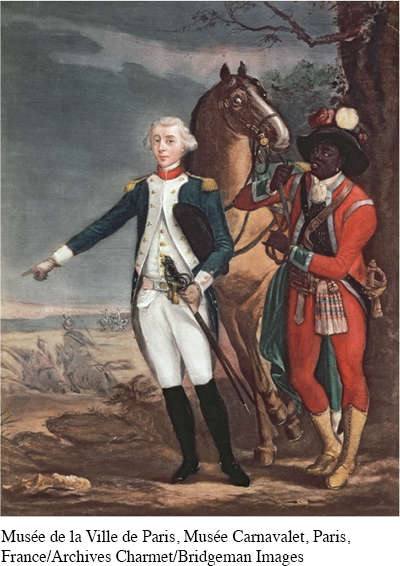France Allies with the Patriots

The Continental Congress considered an alliance with France far more critical to patriot success than the issue of slavery. France’s long rivalry with Britain made it a likely ally, and the French government had secretly provided funds to the patriots early in the war. In December 1776, the Continental Congress sent Benjamin Franklin to Paris to serve as its unofficial liaison. Franklin was enormously successful, securing supplies and becoming a favorite among the French aristocracy and ordinary citizens alike.
But the French were initially unwilling to forge a formal compact with the upstart patriots. Only after the patriot victory at Saratoga in October 1777 did King Louis XVI agree to an alliance. In February 1778, Franklin secured an agreement that approved trading rights between the United States and all French possessions. France then recognized the United States as an independent nation, relinquished French territorial claims on mainland North America, and sent troops to reinforce the Continental Army. In return, the United States promised to defend French holdings in the Caribbean. A year later, Spain allied itself with France to protect its own North American holdings.
British leaders responded by declaring war on France. Yet doing so ensured that military conflicts would spread well beyond North America and military expenditures would skyrocket. French forces attacked British outposts in Gibraltar, the Bay of Bengal, Senegal in West Africa, and Grenada in the West Indies. At the same time, the French supplied the United States with military officers, weapons, funds, and critical naval support.
Faced with this new alliance, Britain’s prime minister, Lord North (1771–1782), decided to concentrate British forces in New York City. This tactic forced the British army to abandon Philadelphia in summer 1778. For the remainder of the war, New York City provided the sole British stronghold in the North, serving as a supply center and prisoner-of-war camp.
Exploring American HistoriesPrinted Page 190
Exploring American Histories Value EditionPrinted Page 142
Chapter Timeline